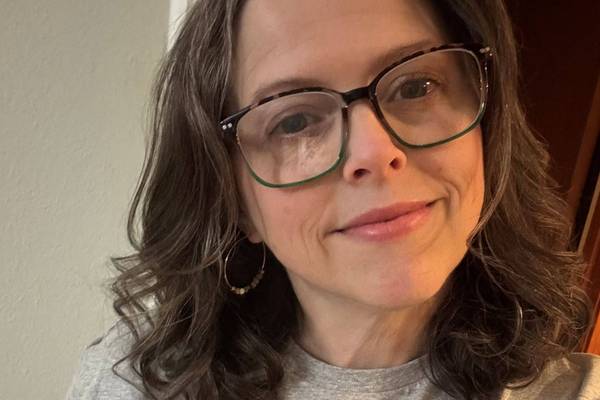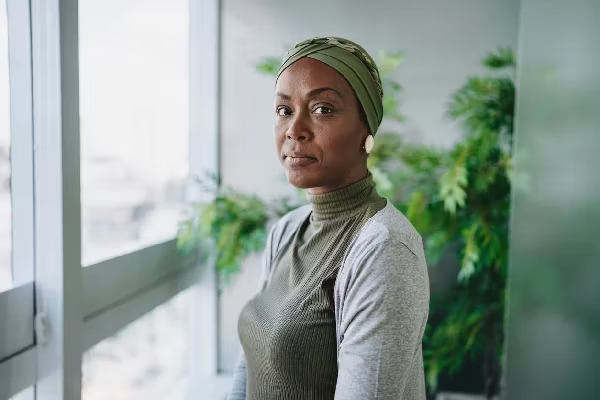Cervical cancer has steadily become less and less common. "It's a preventable cancer because we do a lot of effort in screening to find precancer and treat or remove those precancerous cells so they don't progress to cancer cells," said Nancy Berman, a nurse practitioner and member of HealthyWomen's Women's Health Advisory Council.
Widespread screening for cervical cancer with the Papanicolaou (Pap) test has prevented hundreds of thousands of cases over the past few decades. By regularly screening patients with a cervix, healthcare providers (HCPs) can catch abnormal cells before cancer can develop.
Human papillomavirus (HPV) is the cause of most cervical cancers, and a vaccine became available in 2006. This likely played a large role in the decline of cervical cancer rates by protecting young people from several types of HPV.
Cervical cancer is preventable, so it's a good idea to talk with your HCP about what you can do to be proactive about your cervical health. Here are some important questions to get the conversation going.
What's the connection between HPV and cervical cancer?
Why this question is important:
HPV is a common virus, and most people never even know they have it. Understanding the connection between HPV and cervical cancer is important because there is an opportunity to take proactive steps to avoid contracting HPV with vaccination and to screen for HPV and cervical cell changes with Pap and HPV testing, greatly reducing your risk of developing cervical cancer.
How often do I need to get screened for cervical cancer?
Why this question is important:
Screening guidelines vary depending on the organization. You should speak with your HCP to make an informed decision about which guidelines are right for you. It's important to follow your HCP's recommendations, so you can catch any precancerous cells early and take action. For most people, screening every three to five years is recommended, depending on your past test results, your health history and the screening tests being used.
What's the difference between an HPV test and a Pap test?
Why this question is important:
It's important to understand the difference between HPV and Pap tests because the tests are often administered at the same time, but the results mean different things. An HPV test will determine whether you have the HPV virus in the cervical cells, and a Pap test will determine whether you have any abnormal cells in your cervix. Talking to your HCP can help you interpret what the results of these two tests mean for you.
If I have an abnormal Pap, does this mean I have cervical cancer?
Why this question is important:
Abnormal Pap test results could mean several things, so speaking with your HCP can help you determine the appropriate next steps. "The Pap is a look at cells to see if they're normal or abnormal, and if they're abnormal to what degree," Berman said. If the cells are precancerous, they could progress to cancer cells over time and treatment is indicated. Low-grade or mild changes found on Pap tests usually go away on their own and will be monitored. Your HCP may suggest additional tests as well.
If I have HPV, does this mean I will get cervical cancer?
Why this question is important:
Having an HPV infection doesn't necessarily mean you'll get cervical cancer. In fact, most HPV infections go away on their own within 24 months. It's important to talk with your HCP about your HPV status so you can make an informed decision about preventive care. Your HCP may have different recommendations depending on your risk factors, medical history and lifestyle.
If I have HPV, what does this mean for my partner?
Why this question is important:
HPV can be transmitted through sexual contact. You can talk with your HCP about how to discuss your diagnosis with a partner. It's also important to communicate that HPV infections can exist for years before symptoms appear, and that it doesn't necessarily mean anyone was unfaithful.
If I didn't receive the HPV vaccine as a child, can I get it now as an adult?
Why this question is important:
If you are over age 26, you may still benefit from the HPV vaccine, but the highest level of protection is achieved by getting vaccinated earlier, when you are less likely to have been exposed to HPV. Speaking with your HCP who knows the specifics of your situation can help you make an informed decision.
If I got the HPV vaccine, why do I still need to be screened?
Why this question is important:
The HPV vaccine is a powerful prevention tool, but it does not protect people from all high-risk types of HPV, so screening is still needed after vaccination. Also, vaccination does not treat existing infections in women who have HPV. Talking to your HCP about the HPV vaccine's function can help you better understand your level of risk for HPV and how the vaccine affects that risk.
What are the treatment options for cervical cancer?
Why this question is important:
Treatment options depend on the stage of the cancer, your overall health and whether you want to retain the option to become pregnant after treatment. Each patient has different needs, and discussing your specific case as well as your priorities with your HCP can ensure you receive the treatment that is best suited to your unique situation.
- Take Steps Toward Preventing Cervical Cancer - HealthyWomen ›
- Difference Between a Pap Test and an HPV Test - HealthyWomen ›
- 9 Warning Signs of Cervical Cancer You Shouldn't Ignore ... ›
- Get Screened: January Is Cervical Health Awareness Month ... ›
- Why Is Late Stage Cervical Cancer on the Rise? - HealthyWomen ›
- Planned Parenthood Saved Me from Cervical Cancer - HealthyWomen ›
- Cervical Cancer Stages and Treatments - HealthyWomen ›
- My Cervical Cancer Diagnosis Taught Me How to Live - HealthyWomen ›
- Stay Healthy With Pap and HPV Tests - HealthyWomen ›
- Cervical Cancer - HealthyWomen ›
- Ridding the World of Cervical Cancer - HealthyWomen ›




